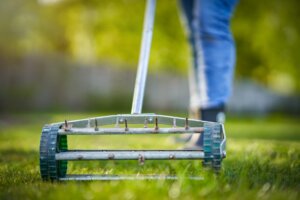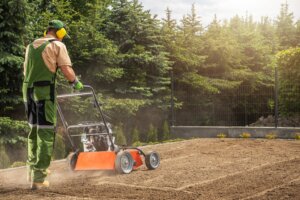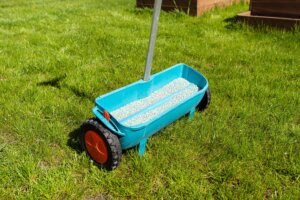Want a greener, healthier lawn fast? Liquid lawn fertilizer delivers nutrients directly to your grass and soil—helping roots strengthen, color deepen, and growth take off almost overnight.
TL;DR: What You Need To Know
- Liquid lawn fertilizer delivers nutrients quickly through roots and blades for faster greening than granular fertilizer.
- Contains nitrogen, phosphorus, potassium, iron, humic acid, and sometimes sea kelp to boost soil health and root growth.
- Easy to apply evenly with a hose-end sprayer; allows precise nutrient control.
- Best for Kentucky bluegrass and cool-season lawns; apply every 4–6 weeks during spring and fall.
- Improves nutrient uptake, microbial activity, and overall soil health.
- Works well alongside granular or slow-release fertilizers for sustained lawn care.
What Is Liquid Lawn Fertilizer and How Does It Work?
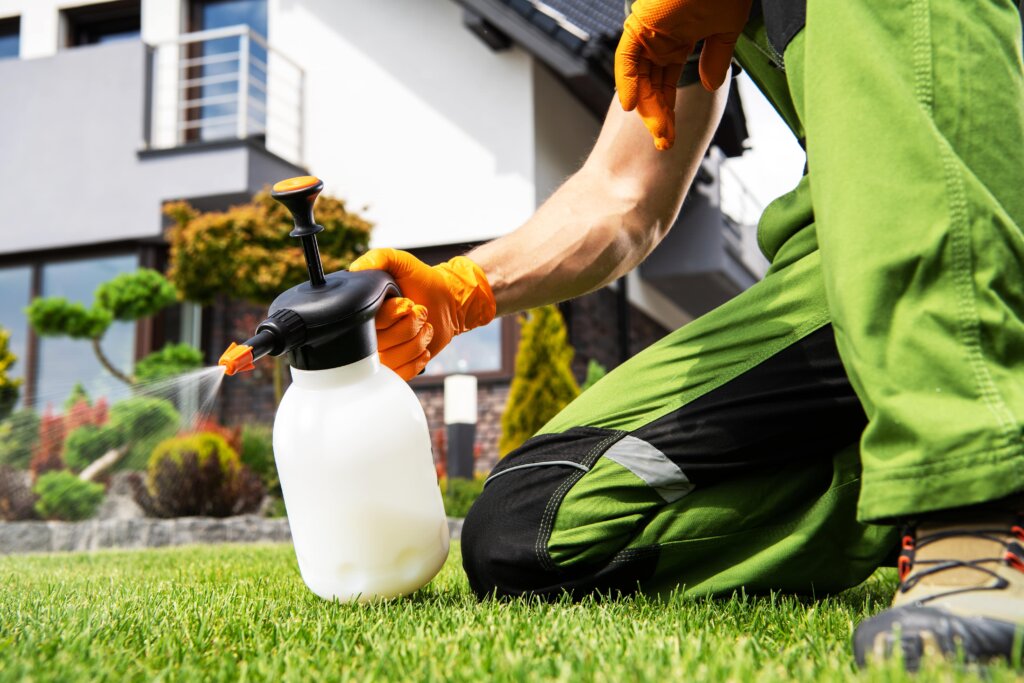
Liquid lawn fertilizer is a nutrient-rich solution designed to feed your lawn quickly through the soil and grass blades. Unlike granular fertilizers that rely on rainfall or irrigation to dissolve, liquid fertilizers deliver nutrients directly when you spray them on.
They contain key macronutrients: nitrogen, phosphorus, and potassium, plus micronutrients like iron and humic acid, improving overall soil health and nutrient uptake. Many products also include sea kelp and other organic compounds that support strong root growth.
Applied with a hose-end sprayer, the liquid form allows even distribution across lawns, gardens, and turf areas, creating faster, more visible results. According to research at Clemson University, turfgrass treated with 100 % liquid nitrogen fertilizer showed higher quality ratings compared to granular alone in certain trials.
Is Liquid Fertilizer Good for Lawns?
Yes. Liquid lawn fertilizer is an excellent option for Pennsylvania homeowners looking for a quick, uniform boost to their lawns. Because it’s already in solution form, it’s absorbed through both the leaves and roots, allowing for immediate nutrient uptake. You can also explore hybrid options like slow-release liquid fertilizer for sustained feeding without the frequent upkeep.
Compared to granular fertilizer, liquids:
- Act faster, showing visible greening in days.
- Allow precise control, letting you adjust concentration and coverage.
- Works well with hose-end sprayers, making application simple.
Terra Lawn Care’s in-house agronomist often recommends liquid fertilizers for lawns that need fast recovery or enhanced root development, especially during the growing season.
5 Easy Steps: How to Apply Liquid Lawn Fertilizer
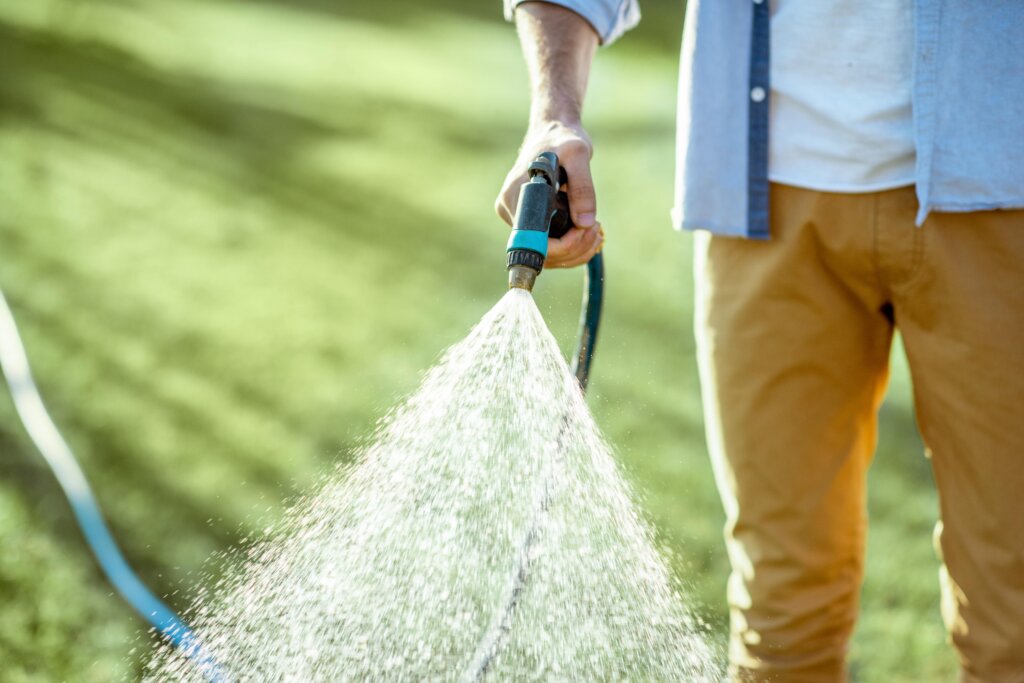
- Measure and Dilute: Follow the product label. Typically, one gallon of concentrate covers 5,000–8,000 sq. ft.
- Use a Hose End Sprayer: Attach to a garden hose for consistent spray distribution.
- Apply evenly: Walk steadily across your lawn, overlapping slightly to avoid missed spots.
- Water if Needed: Light watering helps nutrients soak into the soil and reach the roots.
- Repeat as directed: Maintain every 4–6 weeks for sustained results.
Using a hose-end sprayer ensures uniform coverage and helps create and deliver nutrients efficiently to the roots and grass blades.
What’s the Best Liquid Fertilizer for Your Yard?
The best lawn fertilizers depend on your soil type, grass variety, and current nutrient needs. Here’s a quick comparison to help you select the right product and get great results for your lawn:
| Nutrient | Purpose | Why It Matters |
|---|---|---|
| Nitrogen | Promotes lush green growth | Keeps your lawn vibrant and packed with color all year. |
| Phosphorus | Strengthens root development | Helps roots grow deeper and stronger for better water and nutrient absorption. |
| Potassium | Boosts resistance to stress and disease | Improves lawn recovery time and resilience during hot or cold seasons. |
Look for formulations labeled for turf or lawn use, typically available in one-gallon containers that cover around 5,000–10,000 sq. ft. Always dilute as instructed and apply evenly using a sprayer.
If you’re unsure which product suits your property best, Terra Lawn Care offers professional lawn fertilization services tailored to Pennsylvania’s soil conditions.
How Often Should You Use Liquid Lawn Feed?
Apply liquid lawn fertilizer every 4–6 weeks during the growing season. Spring and early fall are ideal for cool-season grasses like Kentucky bluegrass, as roots are actively growing.
Here’s a simple schedule to follow:
Spring (March–May)
Apply nitrogen-rich mix to jumpstart growth.
Summer (June–August)
Use balanced NPK fertilizer to maintain color and resilience.
Fall (September–October)
Add a potassium-heavy formula to strengthen roots before winter.
Avoid applying when temperatures exceed 85°F or during drought conditions, as excess nitrogen can burn grass. Always water lightly after applying to help nutrients absorb into the soil.
For a deeper understanding of timing and product selection, see Use Liquid Fertilizer.
What Are the Disadvantages of Liquid Fertilizer?
While liquid fertilizers work great for quick results, they do have limitations compared to granular fertilizers:
| Factor | Liquid Fertilizer | Granular Fertilizer |
|---|---|---|
| Longevity | Short-term boost; requires frequent applications | Longer-lasting, slow-release feeding |
| Ease of Use | Easy with the hose end sprayer | Needs an even spreader application |
| Cost | Typically higher per gallon | More affordable for large areas |
| Nutrient Control | Easy to dilute or measure | Harder to adjust concentration |
That said, many lawn professionals use both: a granular base for long-term feeding and liquid applications for seasonal or spot treatments. You can read more about Granular Fertilizers and how they complement liquid products.
How Liquid Fertilizer Improves Soil Health and Nutrient Uptake
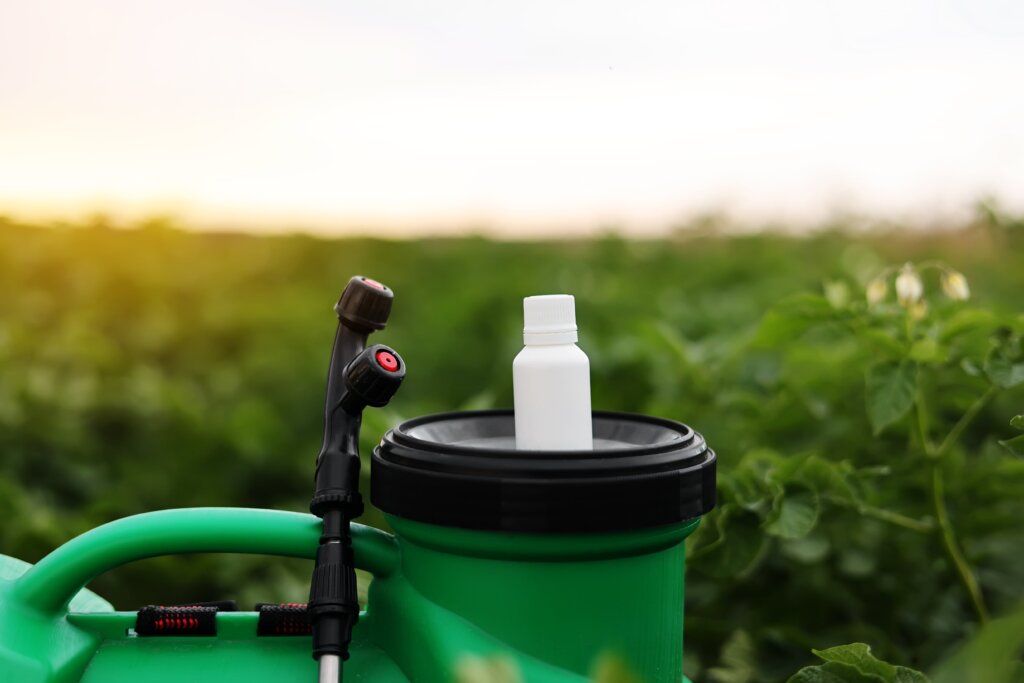
Liquid formulations are packed with nutrients that support root development, enhance microbial activity, and promote long-term soil balance. The inclusion of humic acid improves nutrient retention and structure, while sea kelp boosts stress tolerance and root vitality.
Healthy soil leads to better nutrient absorption, meaning less fertilizer waste and stronger, greener grass. For lawns struggling with compacted soil or poor drainage, this easy way to improve soil health can yield visible results in just a few weeks.
For detailed guidance on choosing the right formula, visit Choosing Lawn Fertilizer: How to Select the Best for Your Lawn.
Why Liquid Fertilizer Works Great for Pennsylvania Lawns
Pennsylvania lawns benefit from liquid fertilizers because they adapt easily to varying soil textures: from clay-heavy areas to sandy loams. With frequent rainfall and seasonal changes, a liquid formulation ensures your lawn gets nutrients exactly when needed, without waiting for granules to break down.
Plus, Terra Lawn Care’s team of state-certified technicians understands local soil composition and turf needs. By combining liquid applications with proper mowing and aeration, homeowners can maintain greener, healthier lawns year-round.
To learn how different products compare, explore Types of Fertilizers.
Local Expertise You Can Trust
As a locally owned and family-operated company, Terra Lawn Care has been helping Pennsylvania homeowners in the Tri-State area achieve lush, healthy lawns since 2003. With over 50 years of combined experience and an in-house agronomist overseeing every program, the Terra team delivers science-backed fertilization solutions designed for your property’s needs.
If you’re ready to enhance your turf’s health and color, get in touch through our Contact page.
Frequently Asked Questions About Liquid Lawn Fertilizer
Yes, liquid lawn fertilizers can often be safely mixed with other garden products, including iron supplements or sea kelp. When you search for compatible products, check the product description and recommended settings on your application device.
Measure carefully to ensure the mix is correct and covers the intended area, usually specified in square feet per gallon. Watching a video demonstration or reading product reviews can help you select the right size and bundle for your lawn. This approach ensures great results, saves money, and allows you to continue maintaining a healthy, vibrant lawn without error.
Most liquid lawn fertilizers are affordable and often sold at a regular price that fits most budgets. When you shop online, check if the product can be added to your cart as part of a seasonal deal or bundle. You can also read feedback from other buyers to find the kind that delivers the best results for your lawn without wasting time or money.
People love liquid lawn fertilizer because it’s easy to apply, saves time, and delivers fast, visible results. You simply mix, spray, and watch your lawn come to life with a healthy green color. Whether you live in a small yard or a large property, it’s a convenient option to buy and use any time of year.

